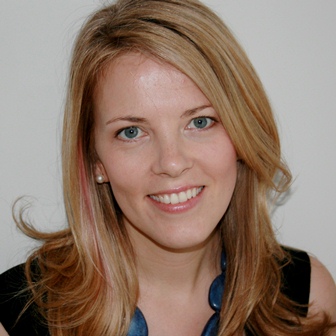Read our interview with Sarah Crossan, author of BREATHE, The Weight Of Water - a book that has been shortlisted for (deep breath) the Carnegie Medal, the Hazelgrove Book Award, the CBI Awards, the WeRead Prize, UKLA Book Award and CLPE Poetry Award - Apple and Rain, and One. Here, she tells us about her journey as a writer and her advice when faced with rejection.

*From the W&A Archive: This article was originally posted in 2013*
The Weight of Water is shortlisted for the Carnegie Medal. Congratulations! How did you feel upon hearing the news?
Quite honestly, and quite unlike myself, I cried. It was so unexpected and so thrilling, and simply a dream come true.
What’s the journey been like between writing your first ever story and the Carnegie nomination?
The journey has been a long one, as it is for most writers. I have been writing since I was a teenager, but it wasn’t until I found an agent in 2010 that things took off; this was ten years after I did my Masters in creative writing.
Have you always wanted to be a writer?
I didn’t really know that people like me could become writers. I thought it was something only those who had journalists for parents and had been privately educated could aspire to. So I read. I read and read and read and at university there were times I missed lectures to finish novels. (That’s as rebellious as it got!) But even at university I didn’t take a creative writing class because I felt intimidated by the other seemingly more cultured students and I wrote, instead, in secret. It was only when I became a teacher and began encouraging children to reach for their dreams that I realised I had never gone after what I wanted myself, and it was about time I tried. So I left teaching and did just that.
And have you always wanted to write for children and YA?
I started by writing for adults, but never finished a project I felt good enough about to send out to an agent. The Weight of Water was the first novel I had any confidence in. I love writing YA and children’s fiction, but I do plan to finish an adult novel sometime in the future.
One of the most striking things about The Weight of Water is that it’s written in verse. Why did you choose to write your book in that format?
I don’t remember making a conscious decision about this, and when I realised the narrator was insistent about speaking in verse, I felt completely daunted. However, I was also excited by the opportunity to write a novel which could show young people that poetry needn’t be scary—it’s an art form that belongs to us all.
Did you consider this a risk? Would you encourage other aspiring writers to be as bold?
Perhaps it was a risk to write in verse, but I think that anything written out of contract is risky and an act of faith.
You have a Masters in writing. Lots of aspiring writers consider joining such courses. What were the most beneficial aspects you took from it?
Doing a Masters made me take myself seriously as a writer and declare to the world that this was what I loved. Before that, I felt embarrassed to say what I was doing with my spare time in case people would think I had a puffed up opinion of myself. And of course I had wonderful tutors who pulled my stories to pieces and made me a lot better at being critical about my own work.
How did you find the publishing process? Was your manuscript rejected before being taken on by an agent?
I am such a perfectionist (and coward) that I never submitted anything to an agent until I knew I’d written something worthwhile. I wrote privately and with no feedback for ten years before I wrote The Weight of Water, and luckily it was picked up by the first agent I contacted.
Tell us what inspires you to write…
I don’t know that I often feel inspired to write, but I feel compelled and when I don’t write, I’m miserable. I have to tell stories in the same was as others have to go to the gym.
Talk to us about your typical writing process. Could you describe your writing day?
I do my best creative work early in the day, typically after I’ve had a cup of green tea. I generally spend five hours working and then spend an hour or two dealing with administration and the minutia of being self-employed!
You have a new book due out in October 2013, the sequel to BREATHE. Can you tell us any more about it?
The sequel to BREATHE is called RESIST and it’s a lot scarier and a tad sexier than the first. BREATHE is told in three voices whereas RESIST is told in four voices. The ending is quite conclusive – no room for a third novel!
Finally, if you could give some advice to aspiring authors, it would be…
I think it’s easy to feel despondent when a glittering writing career doesn’t immediately open up, but like any skill, writing takes time to get good at, so just keep slogging away in private, and be honest about how ready you are to be published.
Find out more about titles and buy the latest releases from Sarah Crossan at Bloomsbury.com.
Comments